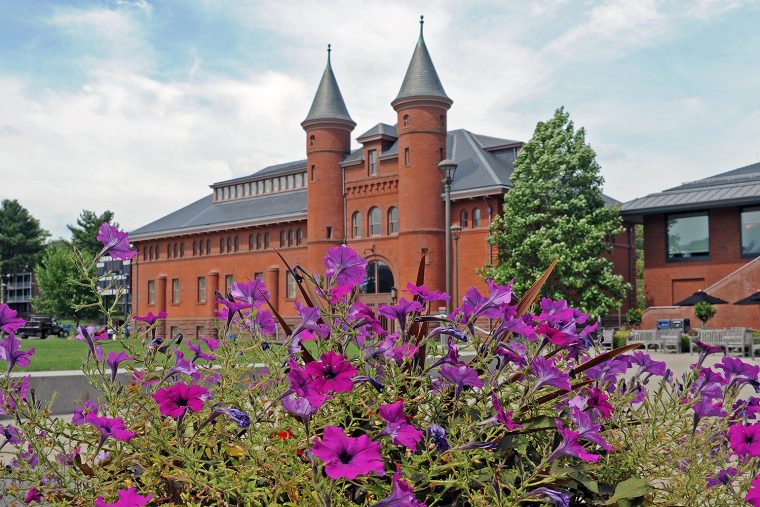New Research Shows 2020 Vote for Trump a Strong Predictor of Lower Vaccination Rates
In a recent article in the journal Regional and Federal Studies James McGuire, Professor of Government, found that Trump’s 2020 vote share was a strong and robust predictor of a lower COVID-19 vaccination rate across US states, US counties, and Connecticut towns alike, adjusting for wide range other factors thought to affect the vaccination rate.
At each of the three subnational levels, McGuire showed, the Trump 2020 vote share was also correlated more closely than the Trump 2016 vote share or the Romney 2012 vote share with the COVID-19 vaccination rate.
McGuire estimated the statistical impact of the Trump 2020 vote share on the June 2022 COVID-19 vaccination initiation (first dose) rate across US states, US counties, and Connecticut towns, adjusting for age, gender, education, race, ethnicity, and rurality, spatial effects, and diverse provisioning- and takeup-related factors. “No previous study of the Trump vote and COVID-19 vaccination has controlled for such a wide range of potential confounders,” McGuire said.
After adjusting for sociodemographic factors and spatial effects, McGuire found that a 10 percentage-point higher Trump 2020 vote share was associated with a 4.5 percentage-point lower COVID-19 vaccination initiation rate across the 50 US states plus DC, a 5.8 percent lower rate across 3,032 US counties, and a 2.0 percent lower rate across 166 Connecticut towns. Adding additional controls (such as for COVID-19 case and death counts) did little to affect these findings.
The Trump effect on the COVID-19 vaccination rate involves both bottom-up and top-down processes. “Although many Trump supporters proudly refuse COVID-19 vaccines, pro-Trump politicians and media celebrities have pandered to and inflamed such rejection. Trump personally is not the only source of the processes behind the Trump effect, but fealty to Trump is a common denominator of most putatively principled resistance to COVID-19 vaccination in the United States,” McGuire wrote.
According to the Centers for Disease Control, McGuire noted, COVID-19 vaccines in 2021 and 2022 prevented 120 million infections, 18 million hospitalizations, and 3.26 million deaths. Dr. Peter Hotez of the Baylor College of Medicine called the refusal of COVID-19 vaccines “the greatest self-immolation in American history.”
In view of this public health catastrophe, McGuire believes that public officials and media outlets should do more to “prebunk” false or misleading claims about vaccines by exposing people, immunization-style, to weakened versions of misinformation and disinformation, allowing them to build up resistance to misleading claims in their own ways. “Then, when misinformation or disinformation appears, people will have developed mental ‘antibodies’ against it,” McGuire said.
Experimental studies show that just telling people that disinformation or misinformation is coming their way seems to help them develop resistance to being persuaded by it. The prebunking tactic evolved from academic research on inducing resistance to persuasion pioneered by McGuire’s father, the social psychologist William J. McGuire.
The resilience of the Trump 2020 vote share as a predictor of the COVID-19 vaccination rate also shows, McGuire argued, that health-related behaviors, like voter preferences and internal party processes, are becoming conditioned increasingly by national-level issues and diminishingly by subnational heterogeneities and concerns.
“Such “nationalization” of voter preferences and party processes has made state and local incumbents less accountable to their electorates. It has converted some states from laboratories of democracy into laboratories of autocracy as national parties have used their control of state governorships and legislatures to suppress the vote and take away civil liberties,” McGuire said. “Just as the nationalization of attitudes toward vaccination has created new challenges for public health, the nationalization of voter attitudes and political party behavior has created new challenges for US democracy.”


